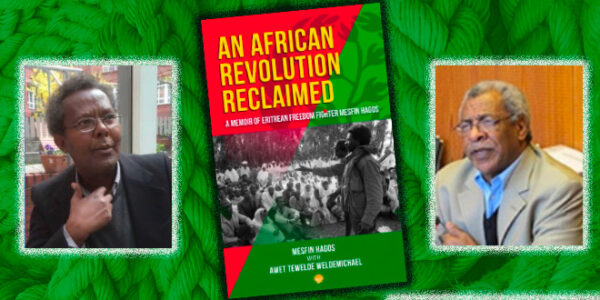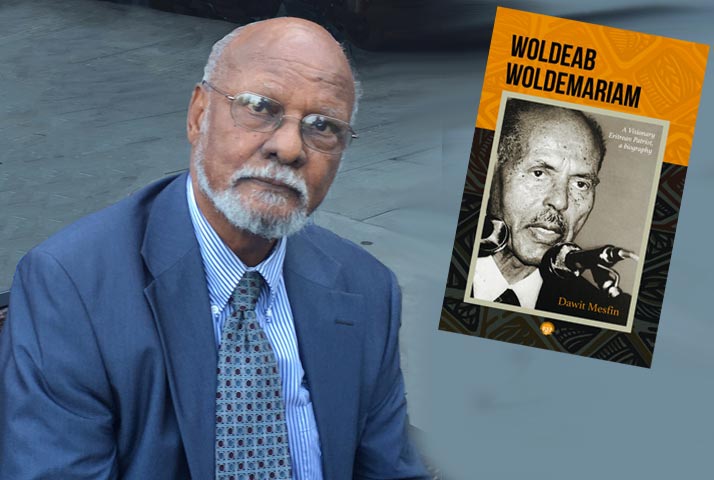The Fear Of The Other Side
Things are going downhill and it seems as if we are going to walk on steep cliffs. I wish this will not happen. Opposition movements are multiple with a range of political formulas. Yet we have witnessed the emergence of new ones and perhaps more will be coming in the future. One cluster here and another there. All targeting the prime enemy-the PFDJ. Political hypotheses are underway and we don’t know which one is going to lead us to the right course. The public is in a dilemma; some preferred to keep silent for a number of reasons, others have no favorable conditions to express themselves and few overtly support the opposition coalition.
Some people might say that the opposition is progressing and has attained the trust of the people. I loudly say no; so far, the opposition camp failed to gain the anticipated popular support of the broader public. Indeed PFDJ supporters tend to be well organized and outnumber opposition supporters. Haven’t we observed the fanatics holding the portrait of the dictator and barking ‘ nihna nsu, nsu nihna’? Haven’t we watched the demonstrations and PFDJ festivals attended by a significant number of people injecting the spirit of survival to the regime? What about the growing number of the highly indoctrinated YPFDJ?
However, this doesn’t mean that the supporters of PFDJ are many. In fact they are few when compared with the SILENT majority. Why silent? A number of reasons lie behind this negative position:
Firstly, the fear against PFDJ conspiracy; people are afraid not to harm their families inside Eritrea. Almost every Eritrean has family members living under the tyranny of the PFDJ. Consequently, they get scared of detention of parents as revenge if somebody publicly resists the regime.
Secondly, a considerable number of people believe that the regime is theirs; it represents their identity, language, culture, and hegemony. This segment of the Eritrean society, know very well that the PFDJ is a ruthless dictatorship, but still they are reluctant to openly oppose the regime. They fear the successor and hence, they are not ready to raise a hue and cry in the face of the despot.
Thirdly, the current setting of the opposition is not attractive to many Eritreans. Too many political parties, but with no or little success. The idea of pluralist democracy lacks a deep understanding by many Eritreans and they tend to be familiar with dictatorship than democracy; they fear the increasing number of political organizations.
Our society, right from the early days of independence is adjusted to the number 1! One leader, one party, one government (without the separation of power), one newspaper, one judge, one people and one heart (not one justice). Similarly, they believe that any resistance against the regime should adopt the norm 1; united, we can step forward. They abhor fragmentation-multiparty setting of the opposition and pluralist democracy is not perceived as a correct road map at least at this moment.
Dictators stay in power because they rule by fear and intimidation and Isaias is no exception. Some basic prerequisites of public awareness are: the freedom of press, freedom of speech, the right to organize political parties and civil society organizations. None of the above exists in Eritrea, and this resulted into the widespread ignorance about understanding the matters of the state and the deserved rights a citizen should demand. Inside the nation, terror and fear is part of the daily life of citizens- you don’t trust your brother and even yourself. ‘The walls have ears ‘ a phrase repeated by mothers to secure her family from the risk of being arrested by the PFDJ spies.
The legacy of terror and fear fled with us abroad but in a quite different form. Here the worrisome is not the fear of PFDJ, but the fear of one another. One of the central controversies of Eritrean politics is the mistrust and the fear of the other side- a phenomenon that is occurring at an alarming rate and polarizing the stakeholders into two different contestants rather than as partners searching for joint gains. Despite the several opposition efforts and international pressure currently underway, the road to the demise of the PFDJ regime may well be long and rocky.
Nowadays opposition parties are characterized by denying, boycotting and slicing the pie of dialogue.
How should we negotiate at the table when we boycott to be seated together?
The upcoming conference is neither the beginning nor the end. By participating in the conference we can listen to one another, lessen the gap of difference among us and establish proximity and optimum ground of understanding and encouragement for the forthcoming conferences. If there are any setbacks and corrective measures for the umbrella organization, we have to go there to the venue of dialogue and openly challenge the concerned authorities face to face. The decision made by the EPDP is not positive and it would affect the formation of a robust and united political movement. One more subject that should be given serious concern across the political spectrum is that we are not cure from the penetration of the concealed agents of PFDJ. They are everywhere: in the opposition parties, civil society organizations and conferences hindering every progress we made. These individuals and groups should be identified and denied the forum of political debate.
Finally, we have to live up and drive out suspicions and mistrust from our spirits, go ahead and let the Eritrean people decide after the collapse of the PFDJ regime.



Awate Forum